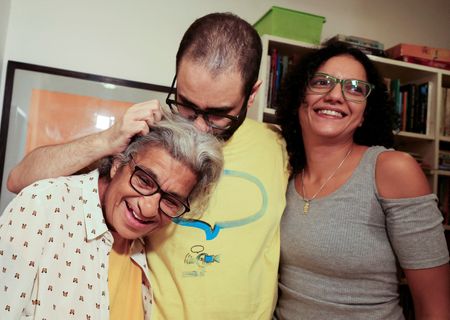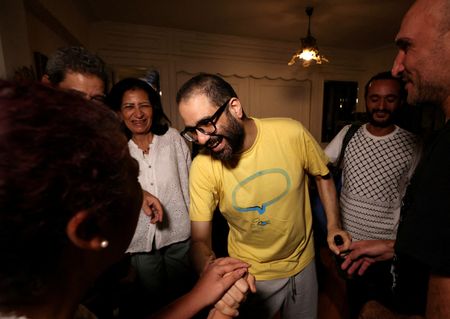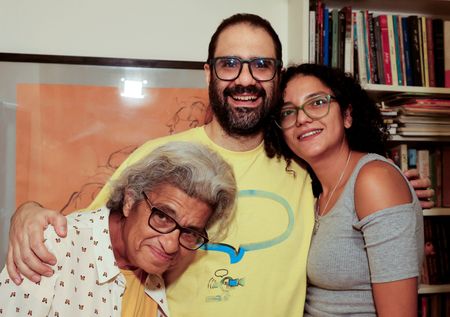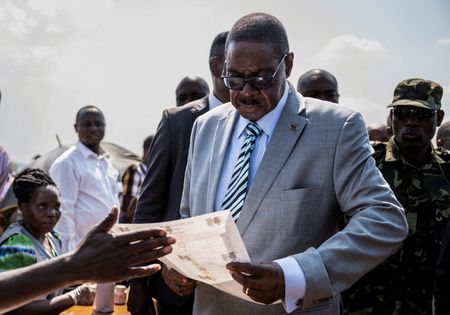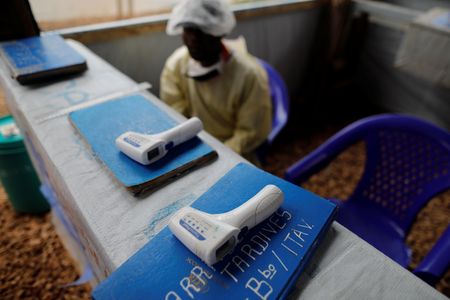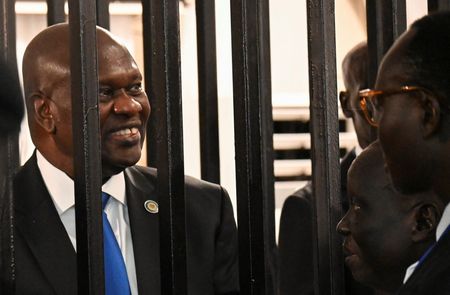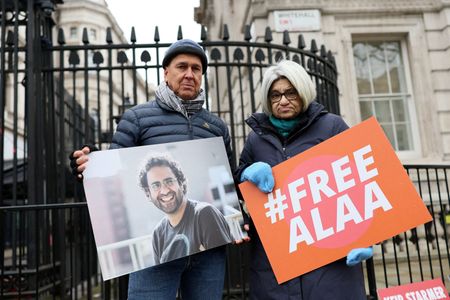(Reuters) -High-profile Egyptian-British activist Alaa Abd el-Fattah was released on Tuesday, his family said, a day after President Abdel Fattah al-Sisi pardoned him and five other prisoners.
Abd el-Fattah, 43, has become Egypt’s most prominent political prisoner after spending much of his adult life in and out of detention due to his activism, and a rare symbol of opposition to a far-reaching crackdown under Sisi. His lengthy imprisonment and repeated hunger strikes prompted widespread international pleas for his release.
“I can’t even describe what I feel,” his mother, Laila Soueif, said from her house in Giza as she stood next to her son surrounded by family and friends.
“We’re happy, of course. But our greatest joy will come when there are no (political) prisoners in Egypt,” she added.
Laila Soueif and Alaa’s sister Sanaa had been waiting outside Wadi al-Natroun prison, some 100 km (62 miles) northwest of Cairo earlier on Monday, hoping he would be freed.
Despite campaigns calling for his release, notably during the COP27 climate summit that Egypt hosted in 2022, hopes for his release were only raised when Sisi ordered authorities in September to study his possible pardon. Abd el-Fattah’s name had been removed from Egypt’s “terrorism” list months earlier.
RELEASE WELCOMED BY BRITAIN
Abd el-Fattah, who obtained British citizenship through his mother in 2021, comes from a family of well-known activists and intellectuals who have launched several campaigns for his release. His mother met British Prime Minister Keir Starmer earlier this year to lobby for her son.
“I strongly welcome the news that Alaa Abd el-Fattah has received a Presidential pardon,” British Foreign Minister Yvette Cooper said. “I’m grateful to President Sisi for this decision. We look forward to Alaa being able to return to the UK, to be reunited with his family.”
Egypt’s National Council for Human Rights, a state-funded body, also welcomed the decision, saying it signalled a growing emphasis on swift justice.
The former blogger had been detained before the Arab Spring uprising that toppled Egypt’s autocrat leader Hosni Mubarak in 2011 and during the upheaval that followed.
But it was his criticism of crackdowns on dissidents after then-army chief Sisi took power that landed him his lengthiest prison stints by far.
In 2014, Abd el-Fattah was sentenced to 15 years in prison for protesting without permission, later reduced to five years.
ACCUSED OF SPREADING FAKE NEWS
He was released in 2019 but remained on parole and was arrested again later that year, accused of spreading fake news after sharing a social media post about a prisoner’s death. He was later sentenced to another five-year term.
His mother Soueif intensified her campaign in September 2024, when she was expecting his release due to time spent in pre-trial detention. Prosecutors argued he should remain in custody until January 2027.
Soueif staged a lengthy hunger strike in Britain, ending it only after pleas from her family as her health significantly deteriorated. Starmer promised he would do everything he could to secure his release.
Abd el-Fattah has also staged multiple hunger strikes in detention, most recently in early September, to protest against his imprisonment and in solidarity with his mother.
(Reporting by Cairo Newsroom; Editing by Alex Richardson, Ros Russell, Richard Chang and Lincoln Feast.)

